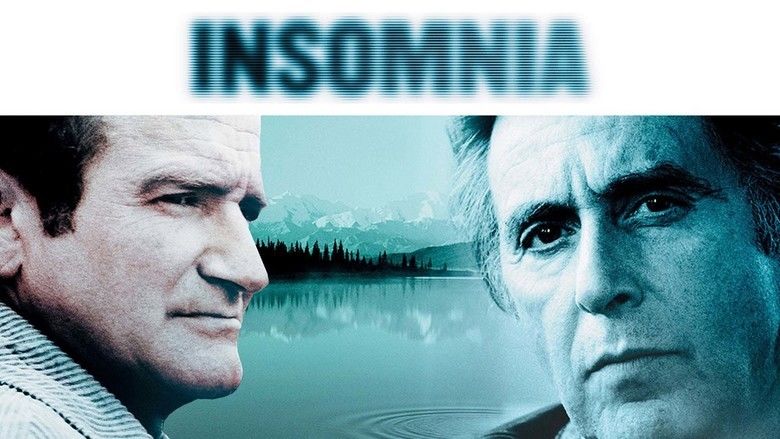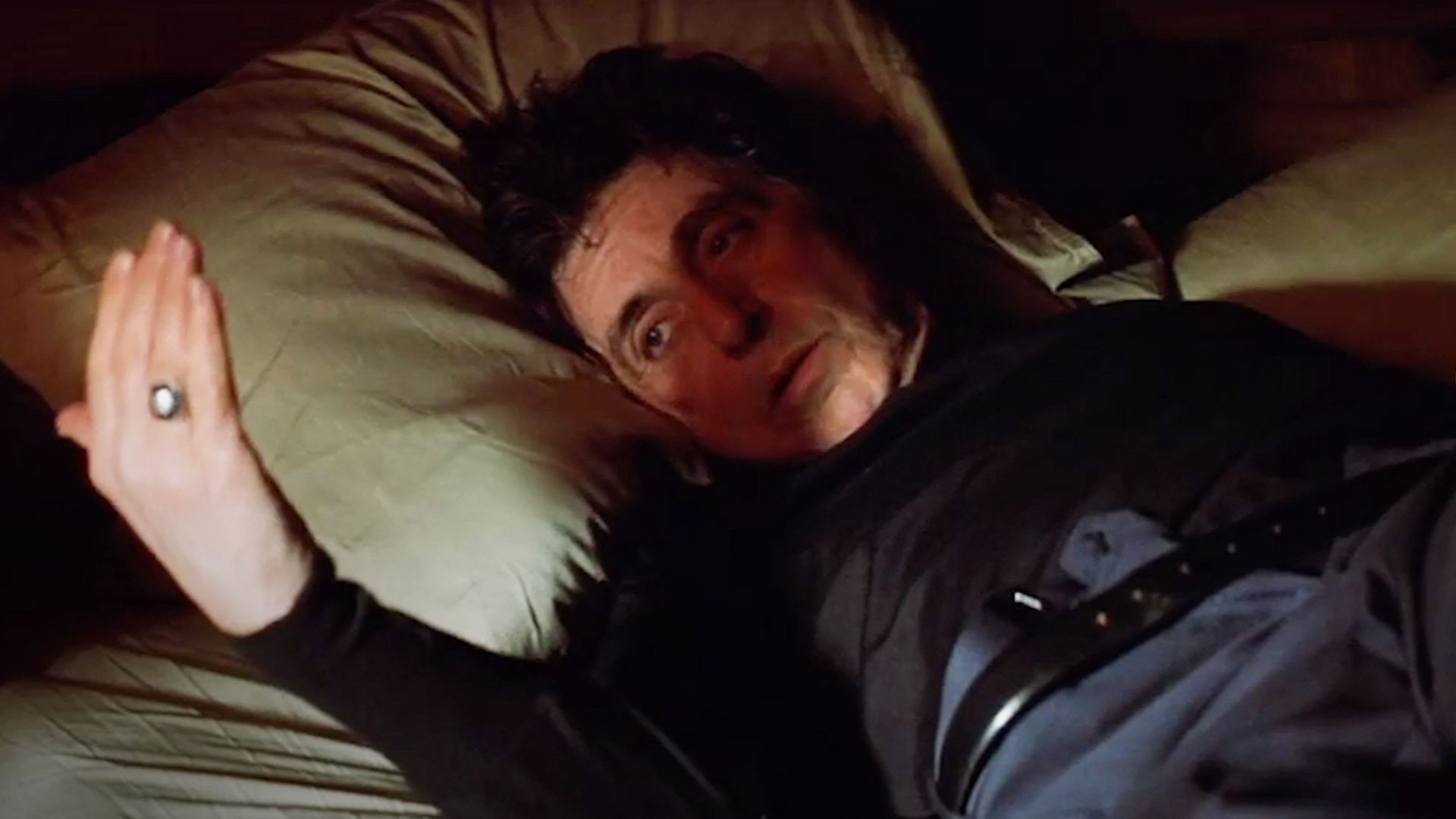Insomnia (2002)

Insomnia (2002) is a psychological thriller directed by Christopher Nolan, known for his intricate plots and mind-bending storytelling. The film, written by Hillary Seitz, stands out as Nolan’s only directorial project where he is not credited for writing the screenplay. This film is a remake of a 1997 Norwegian movie of the same name and features an exceptional cast, including Al Pacino, Robin Williams, and Hilary Swank. Set in the foggy, remote town of Nightmute, Alaska, Insomnia explores themes of guilt, morality, and the limits of human endurance.
The film follows Will Dormer (Al Pacino), a seasoned Los Angeles detective sent to Alaska to investigate the murder of a teenage girl. However, his stay in the town quickly turns into a nightmare as he faces the challenges of solving the case while battling with his own inner demons. Dormer suffers from chronic insomnia, a condition made worse by the constant daylight of the Alaskan summer. His lack of sleep leads him to make dangerous mistakes, blurring the lines between right and wrong as he struggles to catch the killer.
One of the most striking elements of Insomnia is its exploration of the psychological toll of sleep deprivation. Nolan and Seitz do an exceptional job of illustrating how Dormer’s inability to sleep slowly erodes his mental stability, causing him to question his own judgment. This theme of insomnia and its effects on the mind serves as a powerful metaphor for the moral compromises Dormer makes throughout the film. The film’s atmosphere of disorientation and unease is enhanced by its setting in a town where the sun never sets, creating a sense of timelessness and adding to the sense of isolation felt by the characters.
The film also delves deeply into the dynamic between Dormer and the antagonist, played by Robin Williams. Williams, known for his comedic roles, delivers a chilling performance as the killer, Walter Finch. Unlike typical movie villains, Finch is calm, methodical, and manipulative, providing a stark contrast to Dormer’s desperate, sleepless state. The interactions between the two characters are intense and psychologically complex, with Finch subtly manipulating Dormer as the investigation progresses. This cat-and-mouse game between the detective and the killer drives much of the tension in the film.

Another notable aspect of Insomnia is its stunning cinematography. The film’s muted colors and the constant daylight of Alaska contribute to the dreamlike quality of the movie. The striking visuals not only reflect the inner turmoil of Dormer but also emphasize the film’s themes of guilt and moral ambiguity. The haunting landscapes of the Alaskan wilderness add a sense of foreboding to the narrative, and the lingering daylight serves as a constant reminder of Dormer’s mental and emotional struggle. Cinematographer Wally Pfister’s work is crucial in creating the film’s distinct mood and atmosphere.

In conclusion, Insomnia is a gripping psychological thriller that showcases Christopher Nolan’s mastery in crafting suspenseful and thought-provoking stories. The film’s exploration of guilt, morality, and psychological distress makes it a compelling watch, and its stellar performances, particularly by Al Pacino and Robin Williams, elevate the material. The film’s eerie atmosphere and unique setting in the perpetual daylight of Alaska enhance its themes of isolation and torment. Although not written by Nolan himself, Insomnia still carries his signature sense of tension and moral complexity, making it an essential film in his directorial catalog.











